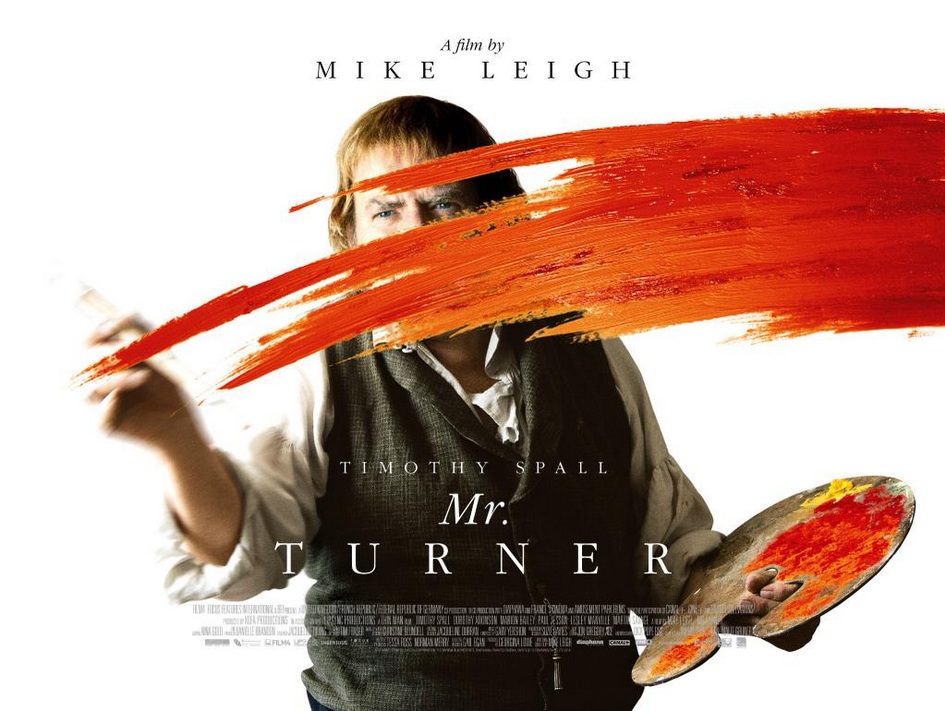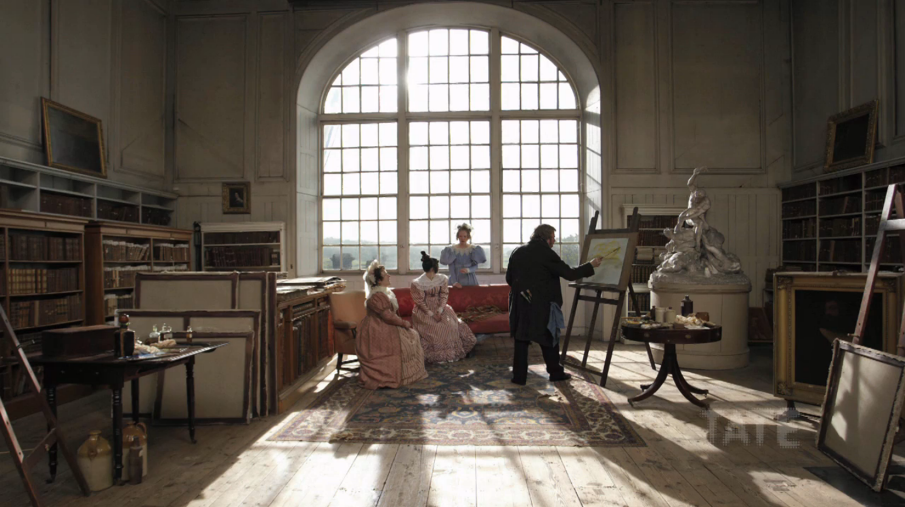 NYFF coverage continues with Michael C on Mike Leigh's latest
NYFF coverage continues with Michael C on Mike Leigh's latest
When a film like Mike Leigh’s Mr. Turner comes along you find yourself wishing you could take back all the “great cinematography” praise you tossed around so cavalierly on other films so that the words can carry more weight now that you really need them. Ideally, so far in 2014, one would have only applied the same praise to Darius Khondji’s work on The Immigrant. OK, yes, Under the Skin’s Daniel Landin also. It’s been an exceptional year.
Not content to merely display his paintings, Leigh and cinematographer Dick Pope manage to permeate the air with the aura of J. M.W. Turner’s art. Some of the film’s images produced audible gasps at the screening I attended. The glory of the visuals grant Leigh and company the freedom to dispense with the many of the usual biopic clichés since we understand so much about Turner’s passion just by looking at the screen. Mike Leigh’s latest simulates what it might be like to see the world through the eyes of the great painter. This element alone makes Mr. Turner essential viewing.

And it’s a good thing we can appreciate Turner’s work without need of words, since the character, as played by Leigh favorite Timothy Spall, is certainly not going to explain it. At times it seems like the more rapturous the film’s visuals the more impossibly gruff the lead character. Mr. Turner puts me in the unfamiliar position of feeling that I did not get to know a Mike Leigh character as well as I would have liked. Which is not to say that Spall and Leigh haven’t done their usual world-class job of characterization. The fully formed character is there, no question. It’s simply that most of their fine work is sealed off from the audience behind a wall of Timothy Spall’s grunts and grumbles. There are long stretches where Mr. Turner is barely verbal, as if he poured so much of himself onto the canvas there was not enough left over to communicate with other human beings. Mike Leigh said in the press conference that Turner was a complicated character, capable of being both immensely taciturn and surprisingly articulate. Mr. Turner would have benefitted from including more of his articulate side.
It doesn’t help that Mr. Turner is a rare occasion when Leigh’s sense of story focus appears to be off. More than one digressions ends up feeling superfluous, circling the character without adding much to the larger portrait. There is one scene, for example, where Turner attends a recital at the home of a rich patron and young women scandalize and delight the audience by performing a bawdy song while Turner sits in the corner sketching. Again, the usual Mike Leigh richness is on display. Nobody does period pieces with the same lived in sense of detail, and the film is finely attuned to every dynamic at play in the room. It’s a wonderful scene, but it not one that Mr. Turner particularly needs. Compare that to a film like Mike Leigh’s Naked, which is another collage built out of digressions, but one where to cut a single frame is unthinkable, every detour an essential part of the whole.
Outside his painting, Turner is defined by his relationship with three women. There is his maid (Dorothy Atkinson) who dotes on him, and whom Turner mostly treats with indifference when he’s not using her as an outlet for his sexual urges. There is Mrs. Booth (Marion Bailey), the Margate innkeeper who becomes Turner’s partner in his later years and with whom he is at his most communicative (which isn’t saying much). And looming over it all is the character of his deceased mother, who went insane when Turner was a boy and whose memory is one of those things that remains walled up inside deep inside Turner, although those memories do break the damn and burst out in one of the film’s best scenes.

Maybe my feelings of mild disappointment are because Leigh, like J.M.W. Turner, is becoming more impressionistic as his mastery increases. And by criticizing Mr. Turner for being less fulfilling than his previous works, I am no better than the small-minded people we see in Mr. Turner scoffing at the great painters increasingly abstract style, joking that he must be losing his eyesight (no less than Queen Victoria declares one canvas a “dirty yellow mess”). Maybe I should just lean back and let myself be swept up in the film’s glorious textures and dappled lighting. I should enjoy all the subtle variations in Spall’s symphony of phlegmy gurgles and let that be enough. But I will risk playing the role of the small-minded Philistine and point out that, while Mr. Turner is in many ways a considerable achievement, the emotional impact of Mike Leigh’s best work is absent from the canvas this time. B+
Mr Turner will be released on by Sony Pictures Classics on December 19th, 2014